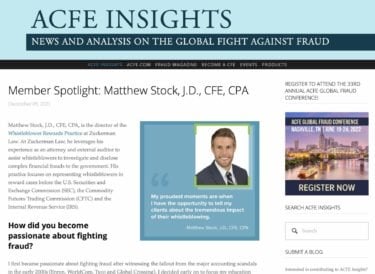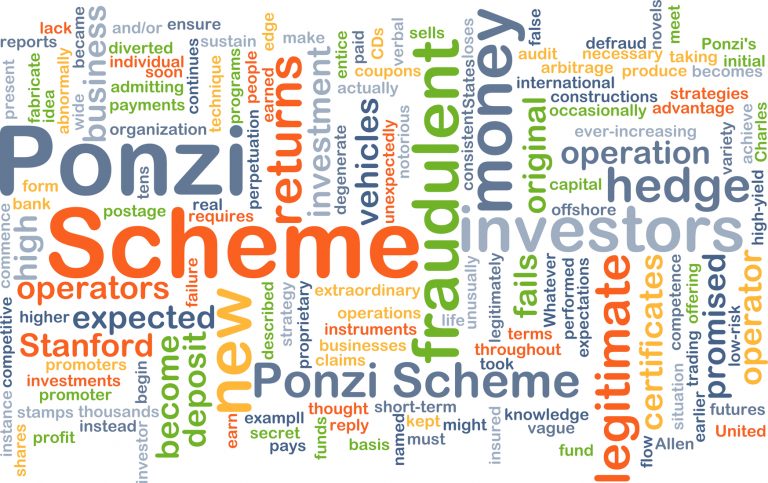
Fraudulent Securities Offerings and Ponzi Scheme Whistleblower Lawyers
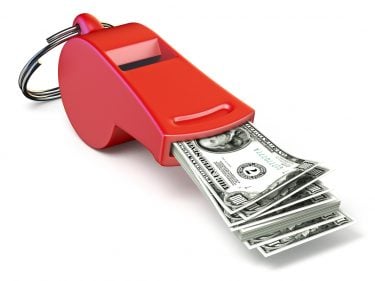
Since 2012, the SEC has awarded nearly $1.3 billion to whistleblowers under the program. The largest SEC whistleblower awards to date are $114 million and $50 million. Our attorneys have substantial experience helping the SEC to halt more than $1 billion in ponzi schemes and fraudulent securities offerings.
If you have information that may qualify for an SEC whistleblower award, contact the Director of our SEC whistleblower practice at [email protected] or call our leading SEC whistleblower lawyers at (202) 930-5901 or (202) 262-8959.






All inquiries are confidential.
Recently the Association of Certified Fraud Examiners published a profile of SEC whistleblower lawyer Matt Stock’s success working with whistleblowers to fight fraud:
Read our tips for SEC whistleblowers and Forbes column about the success of the SEC whistleblower program.
According to a speech by former SEC Enforcement Director Andrew Ceresney, fraudulent securities offerings and Ponzi schemes are the types of securities fraud cases where whistleblowers’ assistance is especially valued. The Director noted that whistleblowers have helped the SEC identify false and misleading statements in offering memoranda and marketing materials, which enables the agency to act quickly and prevent investment frauds from luring more investors. The SEC has issued an investor alert about these fraudulent securities schemes.
Fraudulent Investment Offerings

SEC Enforcement Actions Against False or Misleading Investment Offerings
- On October 13, 2015, UBS agreed to pay $19.5 million to settle charges that it misled U.S. investors about its structured-notes trading strategy. According to the SEC’s press release, UBS falsely stated that the investment relied on a “transparent” and “systematic” currency-trading system that used “market prices” to calculate the financial instruments underlying the index. In reality, UBS failed to disclose hedging trades that reduced the index price by about 5%. As a result of the reduced index price, investors lost roughly $5.5 million.
- On March 9, 2016, the SEC charged California’s largest agricultural water district with misleading investors about its financial condition as it issued a $77 million bond offering. The water district represented to investors that it met or exceeded a 1.25 debt service coverage ratio, which it was required to maintain pursuant to a previous bond offering. In order to meet this ratio, the water district used misleading accounting to record additional revenue by reclassifying funds from reserve accounts. The general manager of the water district jokingly referred to these transactions as “a little Enron accounting.” The actual coverage ratio was only .11, instead of the 1.25 reported to investors.
- On August 15, 2018, the SEC filed an emergency action against Equitybuild, Inc. and Equitybuild Finance, LLC, charging them with operating a $135 million offering fraud involving real estate. According to the SEC’s complaint, the defendants raised these funds by falsely promising safe investments fully secured by income-producing real estate. Thereafter, the defendants took 15-30% of investors’ funds as undisclosed fees, hiding the fees by reporting inflated acquisition costs, and contrary to defendants’ representations, the real estate did not earn enough to pay the double-digit returns promised to investors. As a result, the defendants could only pay earlier investors by raising funds from unwitting new investors in a Ponzi-like fashion.
For more information about offering fraud, see the SEC’s Investor Alert: 10 Red Flags That an Unregistered Offering May Be a Scam.
Ponzi and Pyramid Schemes
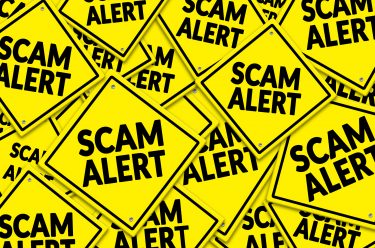
According to the SEC, in the classic Pyramid scheme, “participants attempt to make money solely by recruiting new participants into the program. The hallmark of these schemes is the promise of sky-high returns in a short period of time for doing nothing other than handing over your money and getting others to do the same.”
How to Spot a Ponzi Scheme
The SEC compiled a list of red flags that are common to most Ponzi schemes, which include:
- high investment returns with little or no risk;
- overly consistent returns;
- unregistered investments;
- unlicensed sellers;
- secretive and/or complex strategies;
- issues with paperwork; and
- difficulty receiving payments.
How to Spot a Pyramid Scheme
For more information about pyramid schemes, see the SEC’s Investor Alert: Beware of Pyramid Schemes Posing as Multi-Level Marketing Programs.
SEC Enforcement Actions Against Ponzi and Pyramid Schemes
- On March 10, 2016, the SEC charged an investment group and three top executives with hiding the rapidly deteriorating financial condition of the enterprise while raising more than $350 million from investors. In the scheme, the executives defrauded more than 1,500 investors into believing that they were investing in healthcare, education, and transportation when their money was really being used to keep the firm from going bankrupt. The operation showed some of the typical warning signs of a Ponzi scheme, such as promising high rates of return that ranged from 8.5% to 10%. In late 2015, the scheme unraveled after the firm could no longer meet scheduled redemptions.
- On March 24, 2016, the SEC charged a real estate company with engaging in a $2.7 million Ponzi scheme that targeted elderly investors. Like many Ponzi schemes, the company “guaranteed income” to investors. This income was purportedly derived from the profits of a Pennsylvania real estate venture that bought, redeveloped, and sold properties. In reality, the company did not operate a real estate venture, and it used the investments for personal expenses, such as purchasing tickets for sporting events, paying college tuition, and maintaining personal credit cards.
- On May 1, 2018, the SEC announced fraud charges against Arthur Adams and his company, Madison Timber Properties, for running an $85 million Ponzi scheme. According to the SEC’s complaint, Adams lied to investors by telling them their money would be used by his company to secure and harvest timber, and promised annual returns of 12-15%. Instead of using the investors’ money for timber, Adams used it to pay for his own personal expenses, to develop an unrelated real estate project, and to pay back early investors with later investors’ funds.
- On June 19, 2018, the SEC obtained an asset freeze for a $102 million Ponzi scheme. According to the complaint, the defendants raised money from more than 600 investors across the United States. Then, instead of investing the funds as advertised, the fraudsters spent at least $20 million to enrich themselves, paid $38.5 million in Ponzi-like payments, and transferred much of the remainder in transactions that appear unrelated to their purported business.
- On September 19, 2018, the SEC obtained an asset freeze for a $345 million Ponzi scheme. According to the SEC’s complaint, three defendants raised the $345 million from 230 investors across the United States by promising significant profits from the purchase and resale of consumer debt portfolios. Instead of using investors’ money as promised, the defendants allegedly used the funds to make Ponzi-like payments to earlier investors and fund their extravagant lifestyles, including the purchase of luxury homes for millions and 25 high-ends cars for approximately $10.2 million, among other things.
For more information about Ponzi schemes, see the SEC’s General Resources on Ponzi schemes here.
Dodd-Frank Whistleblower Program
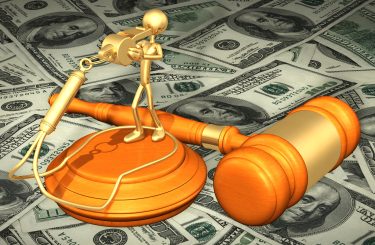
Since 2012, the SEC Whistleblower Office has awarded nearly $1.3 billion in awards to whistleblowers.
For more information about the SEC Whistleblower Program, see our eBook Tips from SEC Whistleblower Attorneys to Maximize an SEC Whistleblower Award. Click below to hear SEC whistleblower lawyer Matt Stock’s tips for SEC whistleblowers:
SEC Whistleblower Bounties
Whistleblowers are eligible to receive between 10% and 30% of the monetary sanctions collected.
Corporate Whistleblower Protection
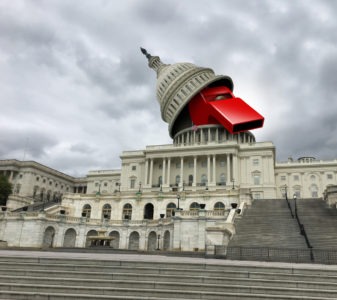
SEC Whistleblower Attorneys
For more information about whistleblower rewards and bounties, contact the SEC whistleblower lawyers at Zuckerman Law at 202-262-8959.
U.S. News and Best Lawyers® have named Zuckerman Law a Tier 1 firm in Litigation – Labor and Employment in the Washington DC metropolitan area in the 2020 edition “Best Law Firms.” In 2017, Washingtonian magazine named two of our attorneys top whistleblower lawyers.
SEC Whistleblower Process
Additional Resources
For more information about the SEC Whistleblower Program, see the following SEC posts:
- SEC v. Merrill et al., case number 1:18-cv-02844,
- SEC Litigation Release: SEC v. Tropikgadget FZE,
- SEC Press Release: SEC v CKB168,
- SEC Press Release: SEC v Rex Venture Group,
- FTC Blog: Pyramids of Fortune?
- FTC Article: Multilevel Marketing
- SEC Investor Alert: Social Media and Investing – Avoiding Fraud,
- SEC Investor Bulletin: Affinity Fraud,
- Investor.gov Article: Avoiding Fraud, and
- SEC Interpretative Release: Multi-level Distributorships & Pyramid Sales Plans.
whistleblower_lawyers_012017_infographic

